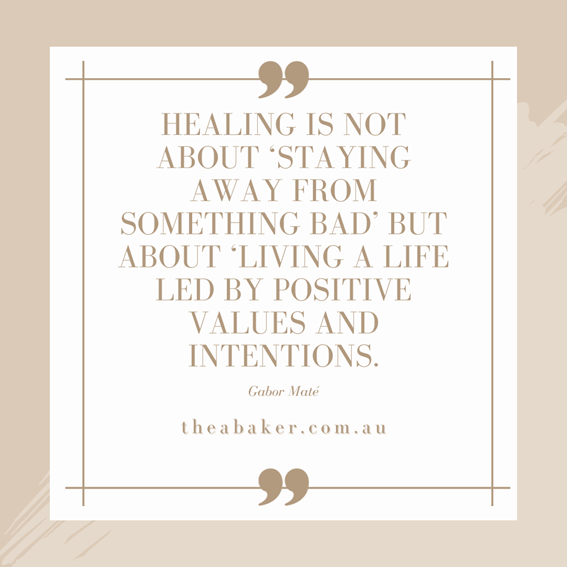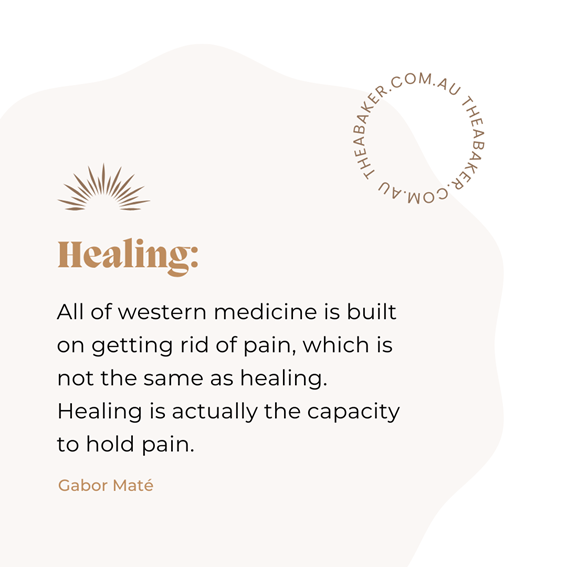Doing the work, or being healed?
Doing the work, or being healed?
I’m revisiting the idea of what it is to experience therapy, how we might frame it, and how we might create reasonable expectations of the process / experience. So many of the challenges we really struggle within life come down to some version of ‘expectations not matching reality’ and I think this also applies to the actual experience of therapy too. Some people come to therapy with a very specific issue that they want to explore or ‘work through’ and can then be surprised to find that that this one issue is actually related to or underpinned by a whole bunch of other experiences in our lives (the human experience is often a very complex one, especially when attachment trauma is involved). It can make the idea of a ‘doing the work’ quite daunting. I struggle to find a good (i.e., clear, realistic, transparent, and appealing) descriptive term for what it is to do therapy. At one end of the spectrum is this idea of ‘doing the work’ (an ongoing, effortful thing) and at the other is some ethereal, transformative ‘healing’ experience which infers a beautiful, pain-free, end-point is available for us all.
I’ve been super open about my belief that all therapists should be doing regular therapy. It might be surprising to learn that in Australia there is no expectation or requirement for us to have EVER done therapy, never mind continue to engage in therapy after qualifying. Wild right? I think it’s important that we are tending to our own triggers that come up as part of our work, but also because we all have things to work through. Stuff happens in our lives too, and I think we can only act as clear mirror for our clients when we attend to those things regularly. I first went to see a counsellor when I was 16 years old and have seen them on and off since then, and since working as a therapist I’ve seen one regularly. I also think it’s really important that as therapists we remember what it feels like to sit in the ‘other chair’, so that we really know what it feels like to be the client in therapy room – how can we encourage our clients to walk down a path we ourselves won’t / don’t travel on?

So ‘doing the work’ gives the experience of ‘therapy’ (which might be with a therapist sometimes but might also come in various forms like podcasts, webinars, workshops, support groups even book clubs!) a heavy sense of effort and difficulty. And I’m not sure that all parts of it have to be. Sure, therapy is effortful. It costs us time and money. It requires commitment and we have to integrate what we learn into our daily lives for it to make any lasting difference. Definitely not easy. I like to frame the idea of ‘doing the work’ as like walking on an unending beach. At the beginning it’s like crawling out of and over shipwrecks, washed up on the beach and clambering over massive rocks and boulders. Over time there are fewer of those huge obstacles but still some difficult rocks to navigate, and then later still it’s like walking on a pebble-beach. When you’re quite some way down the beach it starts to feel more like walking on sand, littered with shells and small smooth stones.
However, even when you’ve been on your healing journey for many years, comfortably walking on soft sand, there will still be shells (behaviours, moments, thoughts, events, traumas) to pick up and look more closely at. There will still be opportunities to reconsider well-worn patterns of behaviour and things that cause us to stop, pause and reassess old hurts. These moments are those we might engage with from a place of curiosity and maybe growth. Other times we’re so busy walking along the beach that we don’t realise there’s a sharp rock in our way that we stub our toe on. They might force us reengage in therapy.

So, I don’t believe that being ‘healed’ is the right goal. It makes it sound like there’s a utopian state of being somewhere out there, that only truly lucky, special or therapy die-hards get to go. I think that kind of thinking verges on the same toxic positivity that sets people up to think that there’s something wrong with them when they don’t have that experience. It’s not like an end point. But therapy is a forever-state either. My aim is to support people to be their own therapist and be on-call for new or extra-tough things, or when it’s time to peel back a few more layers of the proverbial onion. Most of all, don’t be letting anyone put a timeline on how long your beach experience is.
If you’d like to explore therapy and would like a safe space to talk about your mental health, please get in touch with us: www.theabaker.com.au / hello@theabaker.com.au / 03 9077 8194.
